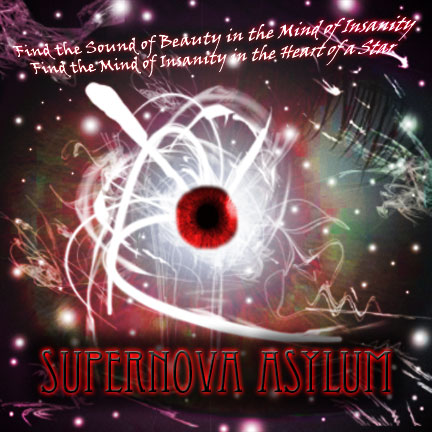Artist: Gojira
Genre: Progressive Death Metal
Length: 75:07
Release Date: October 14, 2008
Label: Listenable (Europe), Prosthetic (America)
Producer: Joe Duplantier
I’m not going to lie and say I have the most “believable” taste of music in the world. For all I complain about band X or praise artist Y, I usually find myself at the losing end of most debates because of the giant schism between me and the average (read: sane) consumer. However, I’m not going to blame anyone for not liking Gojira; they are the kind of artist with a learning curve as steep and impenetrable as a canyon wall, even for genre fans. But just as the most accessible tunes often possess the depth of a tablespoon, so does Gojira present an ocean of opportunities by being so dense and original.
Gojira (whose name is the rōmaji spelling of “Godzilla”, fittingly enough), first truly made a name for themselves on 2005’s astounding From Mars to Sirius. It was a brilliant concept piece that established everything that makes the band unique, talented, and, well…difficult to accept. Their goal is not as much to satisfy their listener as it is to punish them, not quite unlike the progressive death-jazz idols Atheist. But while Atheist overwhelmed listeners with a mixture of blinding speed and bizarre time signatures, Gojira simply bashes their heads in with the kind of raw power you wouldn’t think four guys could create alone. The riffs are thick, the drums precise with blast-beats galore, and the vocalist produces a strange new sound somewhere between a hardcore shout and death-metaller’s growl. They provide the occasional breathing room in the form of instrumentals and experimental noodling, but rest assured the majority of the Gojira experience is claustrophobic, melancholic, and perhaps even frightening, so much so that you would never believe these guys were French.
Yes, it’s a progressive death metal band from France. I wouldn’t lie to you here.
Understandably, when one goes about creating a new style, it comes with a great burden. Thus, the immediate question to ask is whether or not the band’s most recent release, The Way of All Flesh, can possibly compare to the album that defined their careers just three years ago. And if you had asked me a mere few days ago, I would have answered “no”. But with enough time and patience I have come to understand all the subtleties and experiments that make this album every bit as excellent as From Mars to Sirius, if not more so. Not only does it provide a more versatile thrill-ride, it’s the perfect entry point for anyone who wishes to subject themselves to their impeccable brutality.
It immediately succeeds to a certain degree merely by sticking to the principles outlined above; it’s powerful, extreme, and technical the way we expect. But it’s the subtle points that make The Way of All Flesh a transcendent experience: the peculiar mix of synths and vocoder vocals on A Sight to Behold; the surprise guest vocals on Adoration for None; the atmospheric and haunting, atmospheric, four-minute ending to the title track (try listening to it at night, trust me); and most importantly, The Art of Dying. This amazing song opens with a mix of tribal instruments that perfect matches the album’s Aboriginal-esque cover art and ends with a riff that resembles a section of the next track in the set, Esoteric Surgery…played backwards. In between are some of most suffocating moments in Gojira’s history (and remember, that’s a good thing here). And while a few moments on the album feel a tad samey after the big jump in quality that was From Mars to Sirius, the album’s general innovation makes it stand out. Even were that not the case, certain songs on TWoAF represent both the fastest (Esoteric Surgery) and slowest (Vacuity) extremes in music, saving it from feeling anything less than truly special.
If any of this attempts to imply that Gojira only works on the technical and instrumental front, that would be quite the lie. Yes, Joe Duplantier’s growling is easily the biggest obstacle to enjoying the album, but there’s no denying it matches the rest of the ensemble perfectly. And while TWoAF lacks the conceptual storyline that tied all of the songs on the previous album together, it also possesses a much stronger theme: the band’s personal beliefs in life and death. The previous album cemented the band's skill in evaluating tough global issues, namely those relating to mankind's atrocious treatment of the environment; thus, Gojira does not dissapoint in tackling this prickly and bold topic. The subject permeates everything on the album, even the song titles: Oroborus refers to the cyclical, never-ending property of existence associated with Buddhist beliefs, and Yama’s Messengers refers to the Japanese lord of death. Likewise, each song's lyrics are all remarkable pieces of poetry, thanks mostly to their phenomenal imagery. In addition, the album’s biggest musical innovations, as mentioned above, seem to have an other-worldly mannerism themselves, which makes the brutality of the music much more emotive.
As stated earlier, almost none of these magical attributes may be noticed on the first spin of the disc. Perhaps more so than any other album I’ve listened to, TWoAF requires time and patience, almost like watering a dried-up plant with the promise of delicious fruit. Guaranteed, most people will just give and walk away…actually, most people will probably run away and cower in the corner for a few minutes trying to recovery from the pure intensity of it all, but that’s hardly the point. All in all, those of you out there with a taste for pure power and a tolerance for some initial whip-lashing will walk away with something truly memorable, full of substance, and one of the best metal releases of the year.
Youtube Links:
Toxic Garbage Island: http://www.youtube.com/watch?v=TAw5nWJBNrM&feature=related
A Sight to Behold: http://www.youtube.com/watch?v=rXfdRLPA9is
The Art of Dying: http://www.youtube.com/watch?v=_xEYz74bMHA&feature=related
Vacuity Music Video: http://www.youtube.com/watch?v=_Gv7fo6mefo (WARNING: this is probably one of the most disturbing music videos ever made. Don't say I didn't warn you)
.jpg)



EYE.jpg)